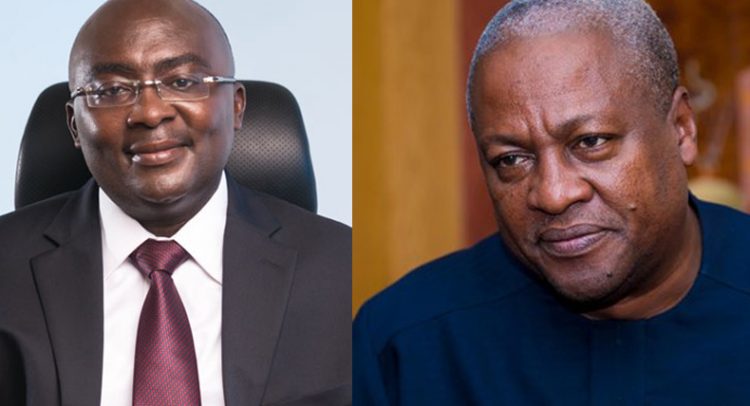
“Criticism is easy, but it does not create.” – Nigerian proverb
As we strive to find meaning in our relationships, we realize that we have to make choices; lots of them. These choices travel along the highway, glittering on the right and speckling on the left.
Without a helicopter view, the options always appear to have the capacity on their own to enrich our lives. They hymn of magical moments and wonderful times. They sing of courage and of kindness; and they hum of suffering and hardships.
In just about everything we do, we have to choose. Sometimes without thought, other times with a bit of reflection; but in the majority of cases, we choose because we assume we know what we are doing. We always choose between good and evil, and between strength and vulnerability.
It is as old as the story of life. The relevance rests in the dichotomy that accompanies it. Over time, the tide has revealed a rare synthesis of the whimsical absurdities of our choices: the eventual options we settle on are skewed towards evil and our vulnerabilities. Is it strange that there is more evil and suffering in modern times than in the times of yerteryear?
Fundamentally, we choose to strengthen our weakness, and to help us live right and well. That is why we are quick to choose the options that sparkle with glitters of luxury and well-being for our individual selves. Unfortunately, these vulnerabilities we seek so hard to stifle, does an amazing trick of opening us up to tragedy.
We hide behind artificial and physical spaces and use the burden of balancing work and home life as a currency of apathy to deny a great many of our fellow human beings the most fundamental human right: the right to love and be loved.
We conveniently forget that our humanity would always be weakest at its most vulnerable point. The harsh reality is these choices have caused great suffering for humanity. We still suffer and we struggle with our vulnerabilities.
On the surface, it sounds unintelligent; but the reality is that the growing disconnect between what we know we must do and what we do allow our vulnerability to influence what lands on our laps. In the process we open ourselves up to welcome tragic choices, the paradox of our intellectual prowess.
The concept of choice is an interesting way to think about life. Most of us think choice in very discrete things; a choice to dance, a choice to be honest, a choice to love, etcetera. These are categories we create ourselves.
Living is a string of related activities that complement each other to create an environment that is conducive for all of us, or conducive for only some of us. Ultimately, what determines the type of environment is dependent on the choices we make.
Choices are the frequencies of power entering our relationships. They come along in a continuum, blending to create a force field in which all things thrive.
For the surprising majority of us, we usually think of our choices as good and the best. But really many of the choices we make have got some good in them and some evil in there as well.
What we must strive to do is to take the good wherever we find it and try to remove the bad wherever it may be. Choice is a very powerful variable in our humanity. It manifests itself in dynamic moods.
It sparks change, it drives innovation, it engineers revolutions, and it invokes conceit, it invigorates pomp and luxury, it invites will and it makes us who we are.
The greatest tragedy of all is the attempt to guard against it by frightening the harshness of its reality, for that denies our basic humanity.
What we need to do is uncloak our hearts and understand that our choices; every single one of them are foundational stones for the future of our humanity. Presently, instead of harmonizing diversity, we are further sub-dividing it.
We have put an upper limit on kindness and goodness; beyond which we no longer are bound to be kind or good. We treat power as a right when we let people kowtow before they relate to us. We champion hypocrisy by criticising the failings and weaknesses of others; whilst painting ours are occupational hazards.
We respect those who are like us and agree with us, and insult anyone who differs or does not tow our views. We preach to the world to step outside of their biases and boundaries, and yet we have comfortably nestled our homes in ours. And the biggest irony is that we tell our subordinates and friends to take risks, whiles we seek to control events.
Every time we fail to make a better choice; we fail to be good human beings. We shoot darts of poison into our humanity, and we cuddle tragedies.
We cloak the world with a dark canvas to block out the magnificent rays of the sunlight that shines to renew us every morning. Henceforth, we can do better. Let us use solidarity and spiritual rebirth to inform our choices.
he glow of materialism and everything that is beautiful are certainly signs of good choices. But an even better sign is the choice that is unselfish and works with others for the good of our humanity.
To choose good is better than simply choosing; and to choose to dignify and harmonise humanity for the common good of all of us is best of all.
__________________________________________________________________
Kodwo Brumpon is an executive coach at Polygon Oval, a forward-thinking Pan African management consultancy and social impact firm driven by data analytics, with a focus on understanding the extraordinary potential and needs of organisations and businesses to help them cultivate synergies, that catapults into their strategic growth, and certifies their sustainability.
Comments, suggestions, and requests for talks and training should be sent to him at [email protected]
The post The Attitude Lounge with Kodwo BRUMPON: Choices and tragedies appeared first on The Business & Financial Times.
Read Full Story
















Facebook
Twitter
Pinterest
Instagram
Google+
YouTube
LinkedIn
RSS